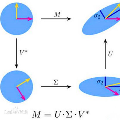In this study, we conduct a thorough and meticulous examination of the Runge phenomenon. Initially, we engage in an extensive review of relevant literature, which aids in delineating the genesis and essence of the Runge phenomenon, along with an exploration of both conventional and contemporary algorithmic solutions. Subsequently, the paper delves into a diverse array of resolution methodologies, encompassing classical numerical approaches, regularization techniques, mock-Chebyshev interpolation, the TISI (Three-Interval Interpolation Strategy), external pseudo-constraint interpolation, and interpolation strategies predicated upon Singular Value Decomposition (SVD). For each method, we not only introduce but also innovate a novel algorithm to effectively address the phenomenon. This paper executes detailed numerical computations for each method, employing visualization techniques to vividly illustrate the efficacy of various strategies in mitigating the Runge phenomenon. Our findings reveal that although traditional methods exhibit commendable performance in certain instances, novel approaches such as mock-Chebyshev interpolation and regularization-centric methods demonstrate marked superiority in specific contexts. Moreover, the paper provides a critical analysis of these methodologies, specifically highlighting the constraints and potential avenues for enhancement in SVD decomposition-based interpolation strategies. In conclusion, we propose future research trajectories and underscore the imperative of further exploration into interpolation strategies, with an emphasis on their practical application validation. This article serves not only as a comprehensive resource on the Runge phenomenon for researchers but also offers pragmatic guidance for resolving real-world interpolation challenges.
翻译:暂无翻译



